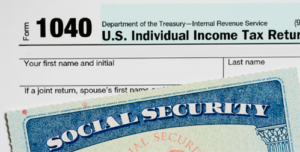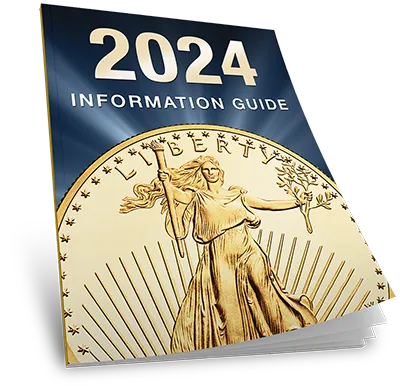- Social Security recipients may by surprised with higher taxes this year
- The income threshold determining your tax burden hasn’t been raised in decades
- Beneficiaries can adopt strategies to reduce or avoid stealth taxes on their Social Security
Social Security Benefits Exposed to Higher Taxes
Some retirees could be in for a shock this tax season. Social Security recipients may experience a phenomenon known as “stealth taxes” on their benefits. Taxes are going up because the government hasn’t changed the Social Security income limit since 1984.
The government changed a lot of things in response to soaring inflation. They changed federal tax brackets and contribution limits for retirement accounts. The government also adjusted the size of the standard deduction. In addition, they raised the Social Security cost-of-living adjustment.
One thing they didn’t change was how much money you can earn before having to pay taxes on your benefits. The low-income thresholds are resulting in more and more seniors paying higher taxes.
Here’s how it works: depending on your income, up to 85% of your Social Security benefits can be taxed. The percentage of all tax returns with taxable Social Security benefits grew to 33% in 2017 from 7.4% in 1999. The Congressional Budget Office predicts that it will grow to more than 50% by 2046. This is a troubling trend for many seniors. They view it as discriminatory double taxation.1
Seniors are pushing for the income thresholds to be adjusted for inflation. Indexing the threshold to inflation would greatly reduce the number of people owing extra taxes. In fact, 58% of seniors are in favor of getting rid of the tax altogether. Social Security overhaul is particularly difficult because of a divided Congress. Any overhaul of Social Security needs bipartisan support.2
The SECURE 2.0 Act (SA 2.0) addressed issues around retirement. But it had unintended consequences. For example, SA 2.0 raises the age at which required minimum distributions (RMDs) begin from 72 to 73 in 2023. Advisors consider this a stealth tax increase. Retirees now have almost five more years of growth subject to taxation. This can potentially impact Social Security and Medicare costs.3

Planning for Taxes
Planning can address potential tax implications. SA 2.0 provides more catch-up provisions for those between the ages of 60 and 63. You can make a catch-up contribution of $10,000 to an employer-sponsored retirement plan starting in 2024. Be warned though. Catch-up contributions for higher earners can be forced into a Roth 401k. This contribution would be taxable income.
Adjusting withholdings can help reduce tax bills. Beneficiaries can consider having at least 10% withheld, or perhaps 12%. Relying on income sources such as traditional IRAs or 401(k)s may help delay claiming Social Security benefits. This can result in higher benefits for the rest of a retirees’ life.4
Stealth taxes on Social Security benefits are a growing concern for seniors. Inflation is already making life for retirees more difficult. And a divided Congress means there is little chance of the income thresholds changing anytime soon. Retirees can plan for potential tax implications. Advisors suggest moving funds into a Roth IRA so withdrawals aren’t subject to taxes. A Gold Roth IRA combines tax advantages with the wealth protection benefits of precious metals. Contact us at 800-462-0071 to learn more about how you can protect your retirement.





